Filter by
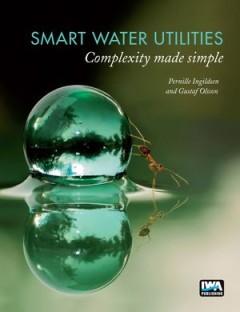
Smart Water Utilities: Complexity Made Simple
Today there is increasing pressure on the water infrastructure and although unsustainable water extraction and wastewater handling can continue for a while, at some point water needs to be managed in a way that is sustainable in the long-term. We need to handle water utilities “smarter”. New and effective tools and technologies are becoming available at an affordable cost and these techn…
- Edition
- -
- ISBN/ISSN
- 9781780407579
- Collation
- -
- Series Title
- -
- Call Number
- -
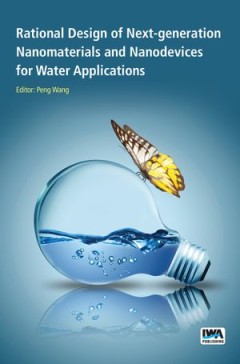
Rational Design of Next-generation Nanomaterials and Nanodevices for Water Ap…
Despite the fact that nanotechnology has been present for a few decades, there is a big gap between how nanotechnology is perceived and what nanotechnology can truly offer in all sectors of water. The question to be answered is 'what more can we expect from nanotechnology' in the water field? The rational nano-design starts with well-defined problem definitions, necessitates interdisciplinary a…
- Edition
- -
- ISBN/ISSN
- 9781780406855
- Collation
- -
- Series Title
- -
- Call Number
- -
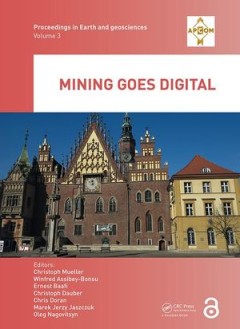
Mining Goes Digital: Proceedings of the 39th international Symposium ‘Appli…
The conferences on ‘Applications for Computers and Operations Research in the Minerals Industry’ (APCOM) initially focused on the optimization of geostatistics and resource estimation. Several standard methods used in these fields were presented in the early days of APCOM. While geostatistics remains an important part, information technology has emerged, and nowadays APCOM not only focuses …
- Edition
- -
- ISBN/ISSN
- 9780429320774
- Collation
- -
- Series Title
- -
- Call Number
- -
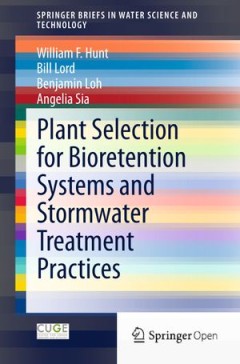
Large Risks with Low Probabilities: Perceptions and willingness to take preve…
This volume contains studies of one particular category of risky situations, namely, those involving highly negative consequences with low probabilities. Situations of this type involve both natural and man-made disasters (e.g. floods, technological hazards, economic crises, epidemics, etc.). Such risks are characterized by two features: (1) they occur relatively rarely (the probability of thei…
- Edition
- -
- ISBN/ISSN
- 9781780408590
- Collation
- -
- Series Title
- -
- Call Number
- -
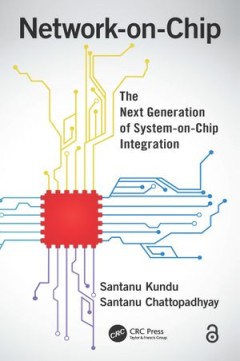
Jar Tests for Water Treatment Optimization: How to Perform Jar Tests – a ha…
The book is intended as a handbook providing detailed instructions for the correct conducting of jar tests, which are needed for the optimisation of the coagulation/flocculation process. It contains the essential theoretical background of coagulation/flocculation, including a description of the influence of different parameters on the coagulation efficiency of various impurities (e.g. pH value …
- Edition
- -
- ISBN/ISSN
- 9781789062694
- Collation
- -
- Series Title
- -
- Call Number
- -
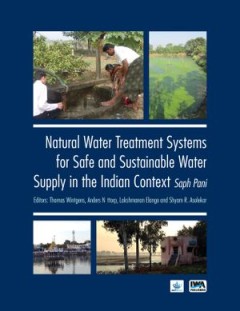
International Rainwater Catchment Systems Experiences: Towards sustainability
Harvesting rain and using it for drinking and domestic use will help to give scattered rural households and under-served city dwellers access to water. The world cannot ignore using rain - as the source of all water. This book presents stories and experiences from some 15 countries from all over the globe, developed and less developed. There are many more experiences that can be highlighted, bu…
- Edition
- -
- ISBN/ISSN
- 9781789060577
- Collation
- -
- Series Title
- -
- Call Number
- -
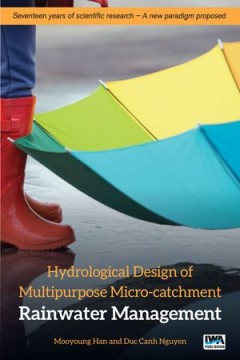
Hydrological Design of Multipurpose Micro-catchment Rainwater Management
Rainwater as a resource has been underrated due to scientific misunderstandings about its quality, the lack of hydrologic design tools for small catchments, such as roofs, the preference for large infrastructures, and the small number of successful cases reported. This book summarizes 17 years of scientific research, operational monitoring, and practical demonstration projects made at Seoul Nat…
- Edition
- -
- ISBN/ISSN
- 9781780408705
- Collation
- -
- Series Title
- -
- Call Number
- -
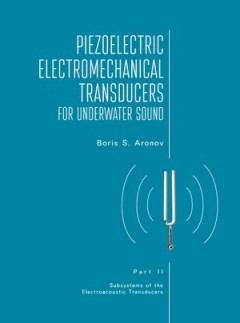
Embracing Analytics in the Drinking Water Industry
Analytics can support numerous aspects of water industry planning, management, and operations. Given this wide range of touchpoints and applications, it is becoming increasingly imperative that the championship and capability of broad-based analytics needs to be developed and practically integrated to address the current and transitional challenges facing the drinking water industry. Analytics …
- Edition
- -
- ISBN/ISSN
- 9781789062380
- Collation
- -
- Series Title
- -
- Call Number
- -
 Computer Science, Information & General Works
Computer Science, Information & General Works  Philosophy & Psychology
Philosophy & Psychology  Religion
Religion  Social Sciences
Social Sciences  Language
Language  Pure Science
Pure Science  Applied Sciences
Applied Sciences  Art & Recreation
Art & Recreation  Literature
Literature  History & Geography
History & Geography